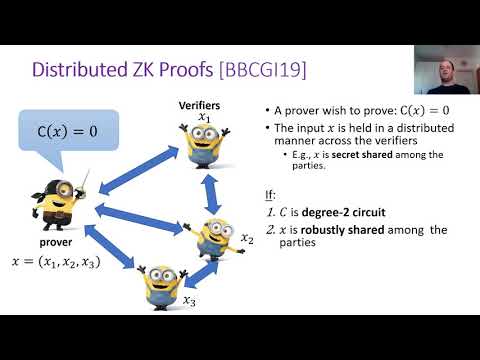CryptoDB
Efficient Fully Secure Computation via Distributed Zero-Knowledge Proofs
| Authors: | |
|---|---|
| Download: | |
| Abstract: | Secure computation protocols enable mutually distrusting parties to compute a function of their private inputs while revealing nothing but the output.
Protocols with {\em full security} (also known as {\em guaranteed output delivery}) in particular protect against denial-of-service attacks, guaranteeing that honest parties receive a correct output. This feature can be realized in the presence of an honest majority, and significant research effort has gone toward attaining full security with good asymptotic and concrete efficiency.
We present a fully secure protocol for {\em any constant} number of parties $n$ and $t |
Video from ASIACRYPT 2020
BibTeX
@article{asiacrypt-2020-30731,
title={Efficient Fully Secure Computation via Distributed Zero-Knowledge Proofs},
booktitle={Advances in Cryptology - ASIACRYPT 2020},
publisher={Springer},
doi={10.1007/978-3-030-64840-4_9},
author={Elette Boyle and Niv Gilboa and Yuval Ishai and Ariel Nof},
year=2020
}

